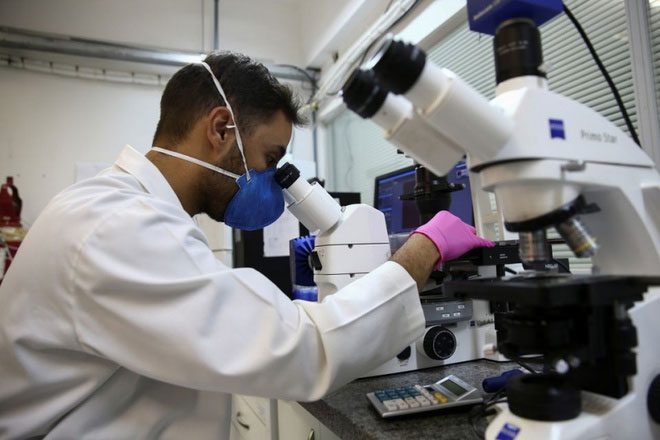Researchers in Brazil have discovered a molecule in the venom of the jararacussu snake that can inhibit the SARS-CoV-2 virus.
A study published in the scientific journal Molecules in August revealed that the molecule found in jararacussu snake venom can inhibit 75% of the replication ability of the SARS-CoV-2 virus in monkey cells, according to Reuters.

Scientists can synthesize the molecule found in jararacussu snake venom, so there is no need for people to hunt them. (Photo: Reuters).
“We found that this component can inhibit a crucial protein of the SARS-CoV-2 virus,” said Rafael Guido, a lecturer at the University of São Paulo and the author of the study.
This molecule is a peptide, or a chain of amino acids, capable of binding to the PLPro enzyme of the coronavirus without harming other cells. The PLPro enzyme stimulates the growth and reproduction of the SARS-CoV-2 virus.
Guido noted that this peptide can be synthesized in the laboratory, meaning there is no need for people to hunt or farm jararacussu snakes.
“We are concerned that people will go hunting jararacussu snakes all over Brazil thinking they will save the world. They do not need to do that,” said Giuseppe Puorto, Director of the Biological Museum at the Butantan Institute in São Paulo. “The venom itself cannot cure Covid-19.”
The next step for researchers is to evaluate the effectiveness at different dosages, as well as the ability of this molecule to prevent the coronavirus from entering cells.
They hope to conduct tests on human cells, although specific information about the timeline for this is yet to be disclosed.
The jararacussu snake is one of the largest venomous snakes in Brazil. An adult can grow up to 2 meters long. This species inhabits the coastal regions of the Atlantic Forest in Brazil, as well as parts of Bolivia, Paraguay, and Argentina.


















































